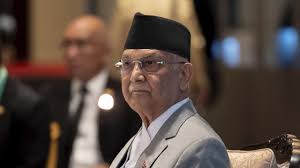
In a bold move to promote regional integration, Burkina Faso has announced visa-free entry for all African nationals, aiming to ease the movement of people and goods across the continent. Security Minister Mahamadou Sana confirmed the policy following a cabinet meeting chaired by military leader Captain Ibrahim Traoré.
“From now on, any citizen from an African country wishing to go to Burkina Faso will not pay any amount to cover visa fees,” Sana declared. However, visitors will still need to complete an online application for approval, he clarified.
This initiative places Burkina Faso alongside other African nations such as Ghana, Rwanda, and Kenya that have recently relaxed travel restrictions for fellow Africans. The African Union has also been advocating for greater mobility across the continent, citing studies that show African citizens often face more travel barriers than those from Western countries.
Captain Traoré, who came to power in a 2022 coup, has positioned himself as a vocal proponent of Pan-Africanism. His leadership style, marked by anti-Western rhetoric and a rejection of colonial legacies, has earned him admiration across parts of Africa. His popularity has been amplified through social media, though critics point to misleading narratives and an increasingly authoritarian approach to governance.
Despite his promises to improve national security and forge new alliances most notably with Russia Burkina Faso continues to grapple with a severe Islamist insurgency. Armed jihadist groups control roughly 40% of the country, and attacks remain frequent.
The government says the visa-free policy reflects its commitment to Pan-African ideals and hopes it will boost tourism, showcase Burkinabe culture, and enhance the country’s global visibility. Yet, questions remain about whether this move will mend strained relations with neighboring states. Burkina Faso, along with Mali and Niger, recently withdrew from the regional bloc ECOWAS and severed ties with France, opting instead to align with Russia.
As the continent moves toward greater unity, Burkina Faso’s decision could be a symbolic step forward or a flashpoint in an already volatile region.



